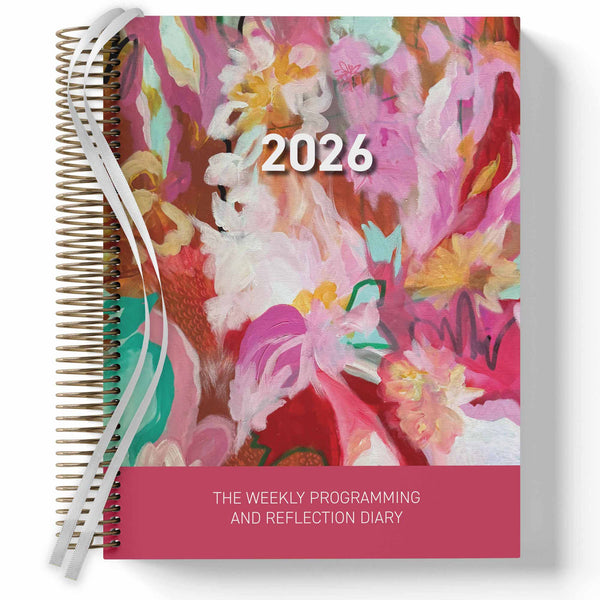Butler Buzz
-

Does the Whole Service Need to Use the Same Programming Method?
"Does our entire service need to use the same programming method?" The short answer is no—but consistency, collaboration, and alignment with the Early Years Learning Framework (EYLF) v2.0 are key factors to consider.
-

How to Use Butler Diaries' Programming Tools for Minimum Documentation but Maximum Compliance
It is easy to identify one of the biggest strains on Early Childhood Educators... Paperwork. With constant updates to frameworks and regulations and no clear, straight forward answer on what needs to be documenting, services often end up over-documenting in order to try to meet their compliance requirements.
-

Understanding the EYLF Practices in Early Childhood Education and Care
EYLF outlines the EYLF Practices that guide educators in their decision-making. Understanding these practices ensures that educators create meaningful, engaging, and inclusive learning environments that foster children's holistic growth.
-

Understanding the EYLF Principles in Early Childhood Education and Care
EYLF is the foundation of early childhood education in Australia. Central to this framework are the EYLF Principles, which provide a strong foundation for high-quality education and care. Understanding these principles is essential for educators to create meaningful learning experiences that support children's holistic development.
-

How to Do Programming in Childcare: A Comprehensive Summary Using EYLF v.2
Programming in ECEC involves creating and implementing a curriculum that supports children’s learning and development. It's essential to align your programming practices with the new standards to ensure high-quality education and care. Here's a breakdown to support you.
-

Empowering Children's Voices: The 'Children's Voices Diary' from Butler Diaries
In Early Childhood Education and Care (ECEC), fostering children's agency is a fundamental principle of the Early Years Learning Framework (EYLF) and My Time, Our Place Framework (MTOP). Encouraging children to express their thoughts, feelings, and reflections not only builds their confidence but also strengthens their sense of belonging and identity. The Children’s Voices Diary from Butler Diaries has been designed with this in mind, providing an engaging and structured way for children to document their experiences, thoughts, and aspirations. See how this Diary can foster children's development, learning, and overall wellbeing, as well as support your program.
-

Top 5 Programming Methods for Early Childhood Education and Care
Effective programming in Early Childhood Education and Care (ECEC) is essential for ensuring quality learning experiences and meeting the diverse needs of children. With the introduction of EYLF v.2.0, educators are increasingly seeking structured yet flexible programming methods that support documentation, critical reflection, and compliance. Here, we count down the top five programming methods, culminating in the best solution for early childhood professionals.
-

Streamlining and Reducing Duplication in Documentation
Documentation plays a crucial role in Early Childhood Education and Care (ECEC), enabling educators to track and reflect on children's learning. However, misconceptions about documentation requirements under the National Quality Framework (NQF) can result in unnecessary administrative burdens and educator burnout. Understanding regulatory obligations and adopting efficient documentation practices can help streamline processes and reduce duplication while still meeting compliance requirements.
-

The Three Dimensions of the Sustainability Principle: Embedding and Documenting in the Early Years
EYLF V2 introduces 'Sustainability' as a core principle, encompassing environmental, social, and economic dimensions. Here we break down the Sustainability principle and how to document it.
-

How Can I Incorporate Cultural Responsiveness into My Programming?
Incorporating cultural responsiveness into your programming is essential for fostering an inclusive, respectful, and supportive environment in ECEC. By embedding cultural responsiveness, educators not only reflect the diversity of the children, families, and community but also meet the principles of the EYLF. Here’s a practical guide to embedding cultural responsiveness into your daily practices and programming.
-

Creative Cardboard Box Activities for ECEC: Engaging Ideas Linked to EYLF Outcomes
At Butler Diaries, we reuse all our packaging we receive our Diaries in from our suppliers to send out our orders to you. So if you use them in your service, these boxes are being reused 3 times at least! Cardboard boxes are versatile and cost-effective resources that can ignite creativity and learning in Early Childhood Education and Care (ECEC). So save your Butler Diaries box from your order and try out one of the below activity ideas that utilise cardboard boxes (linked to the Early Years Learning Framework (EYLF) outcomes of course). -

The Butler Method: Simplifying Programming and Reflection in Early Childhood Education and Care
The Butler Method is a streamlined approach to programming and reflection in ECEC, designed to bring clarity, efficiency, and compliance to the often complex planning cycle. It is a boxed method that values intentional teaching while embracing spontaneous learning moments, seamlessly aligning with Frameworks. By offering a structured yet flexible approach, the Butler Method supports educators in meeting the requirements of NQS while also incorporating the insights of key educational theorists.
-

Understanding the Stages of Social and Emotional Development in Children: A Guide for Early Childhood Educators
Social and emotional development forms the foundation for how children understand themselves, interact with others, and navigate their emotions. In this post, we’ll explore the key stages of social and emotional development, link them to the Early Years Learning Framework (EYLF) and Theorists and provide tips for creating a program that supports this development, with guidance on how to effectively record your efforts. -

How Do I Create a Play-Based Learning Program?
Creating a play-based learning program is not just about facilitating play but harnessing its potential to foster holistic development. In this post, we’ll guide you through creating a play-based learning program and offer tips for recording it effectively.
-

Engaging Parents in Children’s Programs: 10 Strategies for your Service
Parent involvement is key in creating a supportive, well-rounded learning environment for children. Active engagement can enhance children’s learning experiences and foster a collaborative, supportive relationship between educators and families. It is also a core component of NQS and ALFs. Here are 10 tailored strategies for each type of Early Childhood Education and Care setting to encourage parent interest and involvement in their child’s program. -

The role of loose parts in ECEC and how it links with EYLF
Loose parts play in Early Childhood Education and Care (ECEC) offers a rich opportunity for children to engage in open-ended, creative, and exploratory play. This type of play allows children to manipulate and transform materials in a variety of ways, fostering key developmental areas. Linking loose parts play to the EYLF, it strongly supports children's learning in several key learning outcomes. Here’s how loose parts play promotes children's learning, aligned with the EYLF...
-

35 Community Involvement Ideas for Early Learning Services: Engaging Without Leaving the Service
Community involvement is a key part of fostering a strong sense of belonging and identity in Early Childhood Education and Care (ECEC). While excursions and off-site visits are great, there are many ways to connect with your local community without leaving your service. Here’s a list of creative, simple, and effective community engagement ideas that can be done right within your early learning setting. -

2024 Revisions to the Queensland Kindergarten Learning Guidelines (QKLG 2024): What's New?
Here we check out what's new in the QKLG 2024 to support you in your transition. The support in this article is a perfect tool to be utilised in staff meetings and reflective discussions in the lead up to 2025.
-

Expectations of Educational Leaders in Early Childhood Education and Care (ECEC): Free Checklist
As an Educational Leader in Early Childhood Education and Care (ECEC), it's crucial to have clear guidance to ensure you are fulfilling your role comprehensively. Your role is pivotal in shaping the educational practices and overall quality of the service. This guide provides clear directions on your expectations, responsibilities, and practical steps to effectively lead your team, ensuring the best outcomes for children in your care. Download the free checklist... -

Enhancing Early Childhood Education with Reflection Diaries: A Comprehensive Guide
As an early childhood educator, maintaining a reflection diary can significantly enhance your teaching practices and the learning experiences of the children under your care. This article delves into the importance of an early childhood educator reflection diary and how the Butler Diaries' Weekly Programming and Reflection Child Educator Reflection Diary can support you. -

What Are the Duties of a Family Day Care Educator?
Family Day Care (FDC) educators play a crucial role in the Early Childhood Education and Care (ECEC) sector, offering a unique and personalised form of child care within a home environment. Their duties extend beyond mere supervision, encompassing a broad range of responsibilities that contribute to the development and well-being of the children in their care. Here, we explore the key duties of a Family Day Care educator. -

What is a Diary in Childcare and Early Childhood Education and Care?
Diaries in Childcare play an indispensable role in achieving this, serving as more than just a tool for keeping track of dates and events. They are the backbone of effective planning, assessment, and communication within educational settings. Here, we delve into the multifaceted purposes of a diary in ECEC and how it can transform your professional practice. -

A Plan is a Guide Right? What Happens if you Don't Complete your Entire Program that Day?
We saw a question raised in a Facebook group, if the department were to visit and you had not completed your program for the day - will this impact your Assessment? The Short Answer - Nope! The Long Answer - No, this will not impact your Assessment and Rating if you show what you actually did and why. Here are some tips!
-

Example Program Ideas for Babies with Links to EYLF V2
In our blog, 'Tips for Programming for Babies in the Weekly Programming and Reflection Diaries' we discuss how to adjust your program for babies and one of our tips was understanding that not all boxes in your program need to be filled every day. Here is an example program of activities for babies and includes which box it would program under in your Weekly Programming and Reflection Diary, links to EYLF and the description you need to replicate the experience. -

Tips for Programming for Babies in the Weekly Programming and Reflection Diaries
The Weekly Programming and Reflection Diaries are designed to capture programs from babies through to school aged children. Slightly adapting the way you approach programming is what will help you complete your program. This article will support you to implement the Butler Method for younger age groups.
-

An Example of the Sustainability Calendar: QIP in Action
We recently received an example of the Sustainability Calendar and how it is being used to show the Quality Improvement Plan in Action, check it out. -
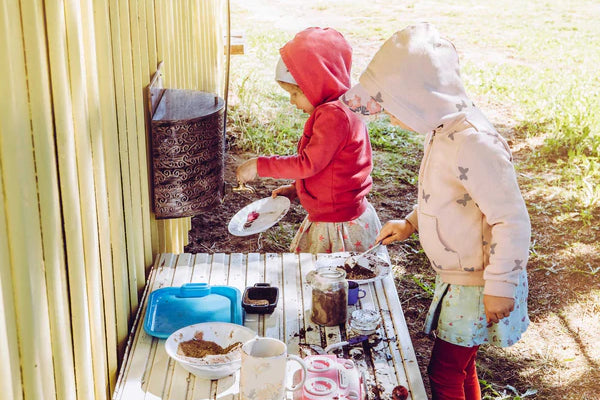
How to Link Theorists to Observations in Early Childhood Education and Care
The best way to learn about how to do something, whether it’s how to teach or how to care for children, is to learn from those who have already done it. Those individuals are called theorists, and their theories are the structures upon which much of the practice that you see around you was built. While all of these theories are extremely beneficial in your practice, it can be difficult to know how each one can be used effectively, especially if you’re new to the field of early childhood education and care. -
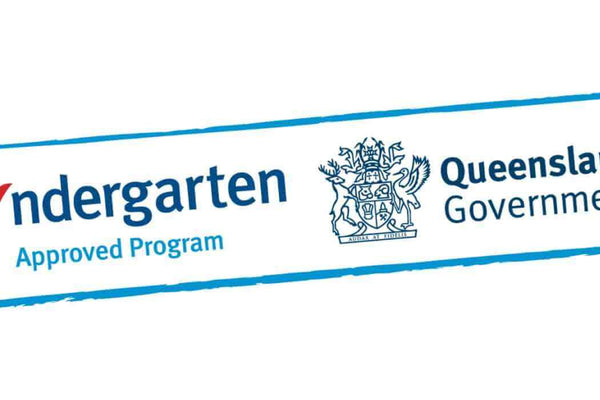
Understanding Queensland Kindergarten Funding: A Snapshot Guide for Approved Kindergartens
Navigating the intricacies of Queensland kindergarten funding is crucial for approved kindergartens to effectively manage resources and provide quality early childhood education. This article aims to demystify the process, detailing when funding is received, how it's accessed, timelines for usage, and permissible expenditures. -
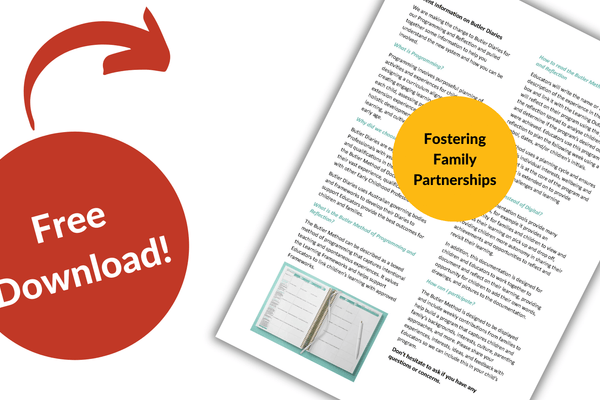
Supporting Families to Understand the Butler Method: Free Parent Information on Butler Diaries
Embark on a shared journey of learning and growth with families by downloading our free Parent Information on Butler Diaries factsheet that supports families understand programming, the Butler Method, the benefits of written records, and how to read and participate in your program. -
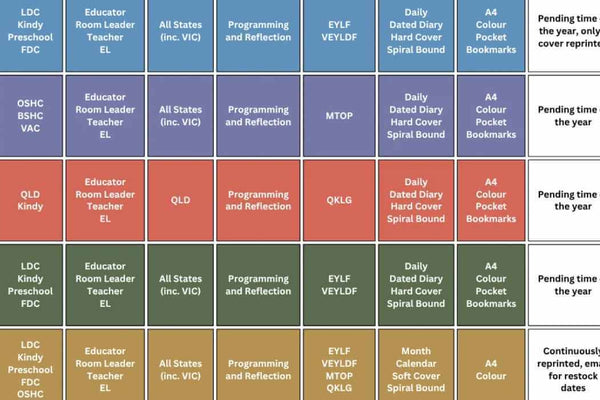
Which Diary is right for me?
Here is a visual guide of which Butler Diaries may be right for you. Check out their purpose, who they are designed for, what's included and what variations are available. -
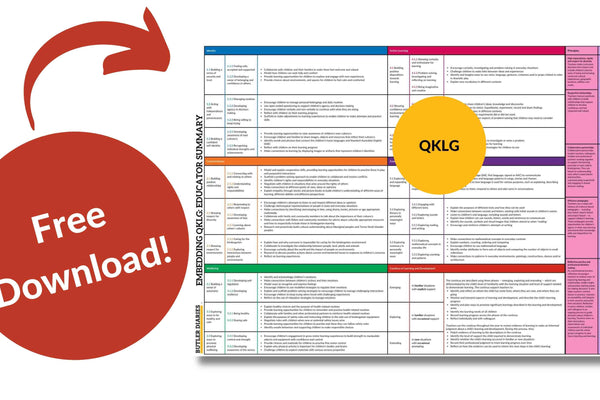
Free QKLG Download: Embedding QKLG into Practice Educator Summary Poster
We delve into the significance of integrating the QKLG into practice and explore the practical application of the Continua of Learning and Development. We've also included a free download, "Embedding QKLG Educator Summary" to support you in your programming, reflections and practice. -
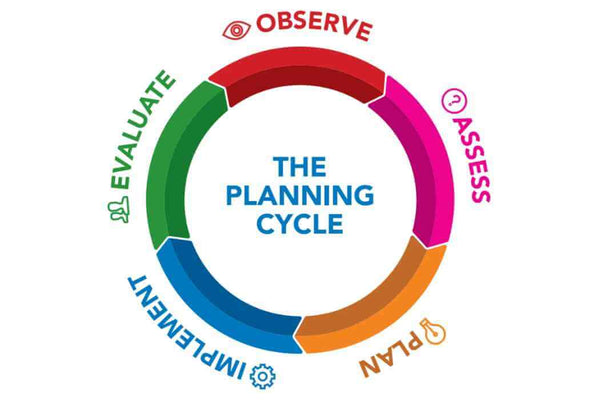
A Practical Example of a Cycle of Planning
Here is an example of what a cycle of planning might look like... -

Where to find examples of the OSHC Weekly Programming and Reflection Diary?
We have a ton of examples and support available for our Weekly Programming and Reflection Diaries... here's how to find them.













































